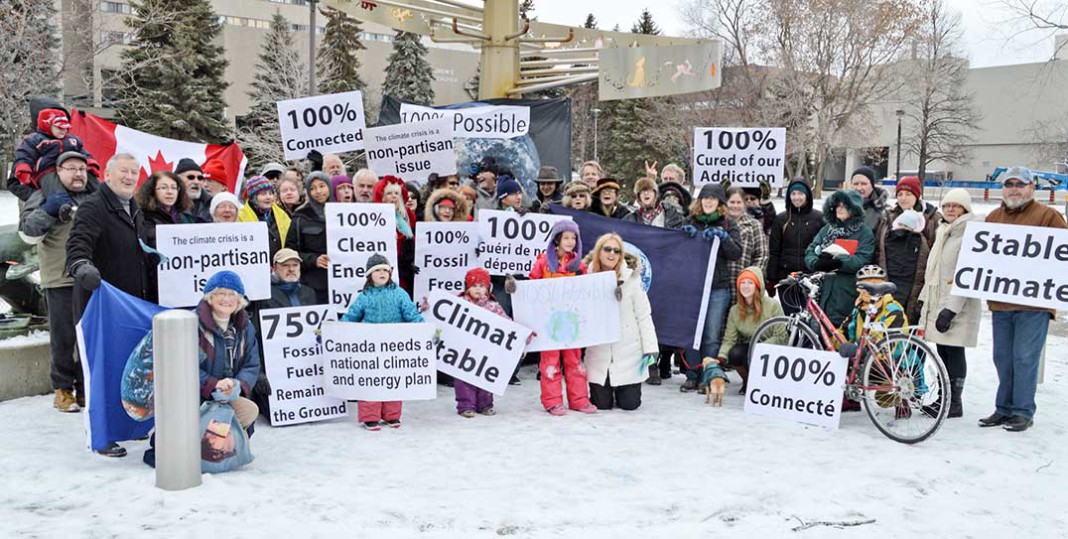by Jan McQuay
SUDBURY—In downtown Sudbury last Sunday, more than 50 people gathered at Memorial Park, part of the growing people’s movement to curb the greenhouse gases that are causing global warming. Marches and events like the one in Sudbury took place around the world ahead of the International Climate Conference in Paris which started Monday. Mary Yett and I drove from Manitoulin Island to make our voices heard too. Worldwide 600,000 people in over 2,000 communities participated, calling for an international accord that will bring meaningful action now.
Cathy Orlando, national manager of the Citizens Climate Lobby (CCL), coordinated the Sudbury event, which was also supported by the Council of Canadians Sudbury and the Coalition for a Liveable Sudbury. “We need climate justice—we need to protect our planet,” she said. “By 2050 we need to be off fossil fuels.”
Ms. Orlando told the gathering that the day’s events worldwide had kicked off with 60,000 people marching in Melbourne, Australia. Even in Paris, where the planned march had to be cancelled for security reasons, people still made a statement by placing 10,000 shoes at the Place de a République to symbolize their call for action.
The people gathered in Sudbury were well bundled up for the chilly weather, which felt like -9°, but the event did not last long. They had made their point by just showing up. Gerry Labelle, also with the CCL, led the Sudbury group in a minute of silence for planet Earth. Later everyone linked arms in a large circle, and sang a song urging Prime Minister Trudeau to resist the tar sands and oil lobbies.
After some group photos, people chatted for a bit before leaving. It was easy to talk because we all shared a deep concern for the environment.
Canadian environmentalists have high hopes that Prime Minister Trudeau will play a constructive role on the world stage. He already met with the provincial premiers to prepare for the international conference, and invited them and leaders of the opposition parties to attend the Paris talks, setting a tone of cooperation in dealing with this issue.
At the provincial meeting, Alberta’s premier Rachel Notley surprised many by announcing a new tax on carbon. Taxing carbon dioxide emissions directly is a simple and straightforward way to reduce emissions, based on the principle that the polluter should pay. If the carbon tax is offset by a corresponding reduction in income tax or sales tax, then it’s not a tax grab, it’s just re-designing the tax system. Many environmental groups are advocating this kind of revenue-neutral system to avoid placing an extra tax burden on individuals and families.
Ontario recently announced it will implement a more complicated “cap and trade” system. In this system, the government sets a ceiling or “cap” for carbon emissions for individual companies, and companies that are above their allowed cap have to buy permits to pollute from companies that are below their cap. Ontario will raise revenue by also auctioning off permits.
Despite new measures at the provincial level, Prime Minister Trudeau had to go to the Paris Conference without a greenhouse gas target for Canada.
There is a lot at stake. The Intergovernmental Panel on Climate Change warns that global warming of 2°C above 1990 levels will result in mass mortality of coral reefs, and one-quarter of the world’s species being committed to extinction. That kind of damage is nothing less than catastrophic, but if global temperatures rise more than 2°C, the effects will be even worse.




